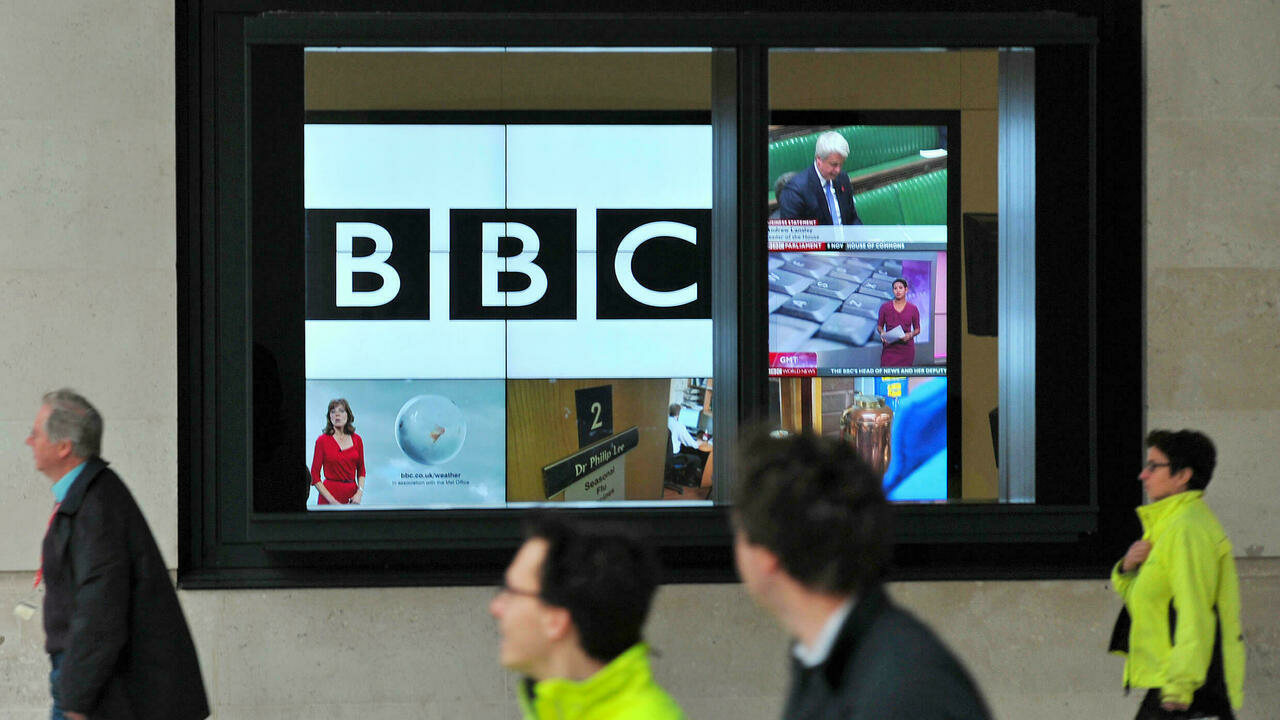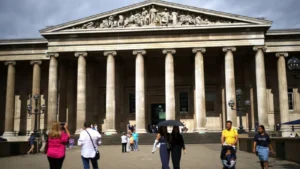
The BBC’s Moscow correspondent, Sarah Rainsford, is one of the corporation’s senior foreign correspondents, having previously reported from Havana, Istanbul and Madrid
Advertising Read more
London (AFP)
The BBC on Friday accused Russia of “a direct assault on media freedom” after effectively expelling one of its Moscow correspondents by not renewing her visa.
“The expulsion of Sarah Rainsford is a direct assault on media freedom which we condemn unreservedly,” said BBC director-general Tim Davie, after Russian state TV said she had until the end of this month to leave.
“Sarah is an exceptional and fearless journalist,” added Davie, saying that Rainsford provided “independent and in-depth reporting of Russia and the former Soviet Union”.
The move comes at a time of simmering tensions between Moscow and the West and a crackdown on opposition groups and independent media in Russia.
“It’s a milestone expulsion,” a presenter of state news channel Rossiya 24 said late Thursday evening.
Without identifying its source, Rossiya 24 said Rainsford, who was previously based in Havana, Istanbul and Madrid, would not have her visa extended when it expired at the end of August.
The presenter said the measures were symmetrical to the alleged pressure Russian media face in the United Kingdom.
In 2019, Britain’s broadcasting regulator Ofcom fined the Kremlin-backed television channel RT £200,000 for “serious” bias in its coverage of the 2018 nerve agent poisoning in the English city of Salisbury and the Syria conflict.
In response, Ofcom’s Russian counterpart opened a probe into the BBC for its reporting of the conflict in Syria.
The attempted murder of Sergei Skripal, a former double agent, with the chemical weapon Novichok, saw the expulsion of 23 Russian diplomats, with Moscow reacting in kind.
Diplomatic ties had been strained since the 2006 radiation poisoning death of another former Russian spy Alexander Litvinenko, which he blamed on President Vladimir Putin in a posthumous message.
– ‘Anti-Russian activities’ –
Although Moscow frequently criticises Western media for their reporting on Russia, it rarely expels journalists.
The Russian foreign ministry did not immediately respond to AFP’s request for comment.
Its spokeswoman Maria Zakharova, however, said on her Telegram channel on Friday that it was up to the British broadcaster to speak first.
“Don’t be shy,” she wrote.
“Everything was explained in detail to BBC representatives who recently visited the foreign ministry. They should have something to say.”
Last week, the foreign ministry said it had banned several unnamed British nationals from the country over their “involvement in anti-Russian activities”.
It was not clear whether Rainsford was on the list.
The BBC, which is publicly funded through an annual licence fee of all television set holders but editorially independent of government, is regularly attacked at home, with accusations of political bias.
But it also comes under fire abroad, including in China, where in March this year one of its senior correspondents left for Taiwan, after facing pressure over his reporting.
John Sudworth said he had relocated after nine years in Beijing because it was “too risky to carry on” because of threats due to his reporting of alleged rights abuses against the Uyghur minority and the coronavirus outbreak.
Last month, China launched a scathing attack on the BBC, accusing it of broadcasting “fake news” over its reporting of devastating floods in the country’s central region.
© 2021 AFP








